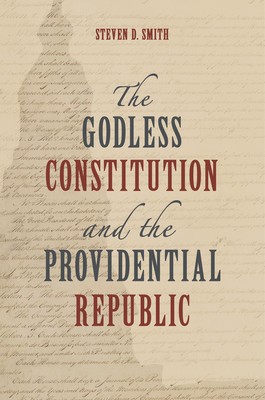
- We will send in 10–14 business days.
- Author: Steven D Smith
- Publisher: William B. Eerdmans Publishing Company
- ISBN-10: 0802885225
- ISBN-13: 9780802885227
- Format: 15.2 x 23.2 x 2.6 cm, kieti viršeliai
- Language: English
- SAVE -10% with code: EXTRA
The Godless Constitution and the Providential Republic (e-book) (used book) | bookbook.eu
Reviews
Description
Were America's founding ideals religious or secular? In this timely and well-researched book, law scholar Steven D. Smith makes the case that the United States of America was founded on a providentialist view--the belief that God actively directs the destinies not only of individuals but of nations. Smith shows how this providentialist perspective was pervasively, officially, and unapologetically expressed in essential public documents like the Declaration of Independence and by presidents from Washington, Adams, Jefferson, Madison, and Lincoln to modern presidents including FDR, Eisenhower, Kennedy, and Obama. A crucial point in Smith's argument is that the Constitution neither prescribed nor forbade this providentialist understanding; it was like an agnostic parent who allowed their children the freedom to follow a religious or nonreligious path, as they wished. In modern times, by contrast, the courts and the legal and academic communities have frequently misinterpreted the Constitution as mandating governance that is completely secular. In so doing, they have effectively banished the providentialist perspective from American public philosophy. The consequences of this banishment have been deeply disruptive, contributing to dangerous polarization and lack of trust in government and other public institutions. Smith's compelling study is an essential resource for making sense of current debates about the place of religion in American public life. Readers will gain a deeper understanding of the extent to which secular neutrality is not mandated by the Constitution but rather is a modern invention with little grounding in the nation's history.EXTRA 10 % discount with code: EXTRA
The promotion ends in 23d.18:59:34
The discount code is valid when purchasing from 10 €. Discounts do not stack.
- Author: Steven D Smith
- Publisher: William B. Eerdmans Publishing Company
- ISBN-10: 0802885225
- ISBN-13: 9780802885227
- Format: 15.2 x 23.2 x 2.6 cm, kieti viršeliai
- Language: English English


Reviews